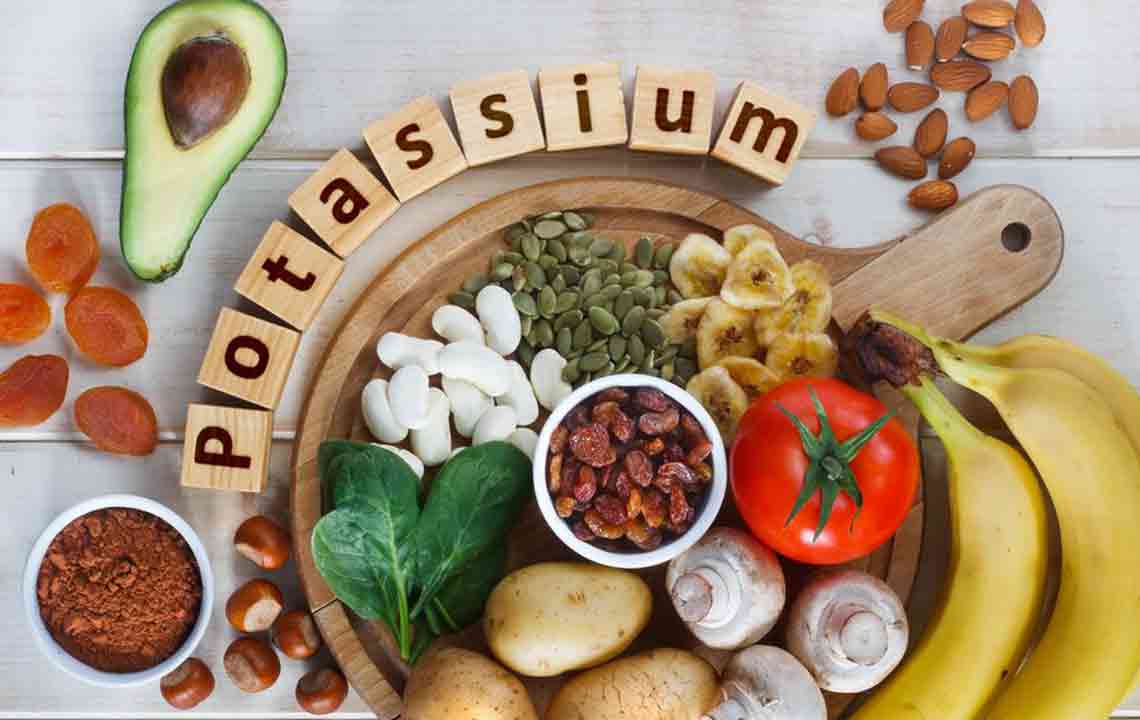Comprehensive Guide to Magnesium-Rich Foods and Their Amazing Health Benefits
This comprehensive guide explores the importance of magnesium-rich foods, their health benefits, and practical tips to incorporate them into your diet. From leafy greens to seafood, learn how to improve bone health, regulate blood sugar, support cardiovascular function, and boost mental well-being through balanced magnesium intake. Essential for overall health, magnesium plays a vital role in preventing chronic diseases and maintaining optimal body function. Discover key sources, cooking tips, and the significance of maintaining adequate magnesium levels to lead a healthier life.

Discover the Power of Magnesium-Rich Foods for Better Health
Magnesium is a fundamental mineral crucial for maintaining overall health and well-being. It plays an essential role in over 300 enzymatic reactions in the human body, influencing everything from energy production to nerve function. Incorporating magnesium-rich foods into your daily diet not only supports cardiovascular health and strengthens bones but also aids in stress reduction and inflammation control. In this extensive guide, we will explore the top sources of magnesium, their health benefits, and practical tips to ensure you meet your daily magnesium requirements for optimum health.
Why Magnesium Is Vital for Your Body
Magnesium is indispensable for maintaining numerous physiological functions. It contributes significantly to the formation of bones and teeth, supports muscle contraction and relaxation, and ensures proper nerve transmission. Moreover, magnesium is involved in synthesizing DNA, RNA, and proteins, which are critical for cellular function and tissue repair. It also plays a pivotal role in managing blood glucose levels, which makes it valuable in diabetes prevention and management.
Achieving adequate magnesium intake can be effortless by consuming a variety of nutrient-dense foods. Below are some of the richest sources of magnesium and how they can benefit your health:
Dark Leafy Greens: Spinach, kale, Swiss chard, and collard greens are among the top plant-based sources of magnesium. These greens are not only packed with magnesium but also rich in vitamins, minerals, and antioxidants essential for overall health.
Nuts and Seeds: Almonds, cashews, pumpkin seeds, sunflower seeds, and sesame seeds are excellent sources of magnesium. Including a handful of nuts or seeds daily can help prevent deficiencies and promote heart and bone health.
Whole Grains: Brown rice, quinoa, oats, and whole wheat bread contain high magnesium levels. These grains support metabolic health, reduce inflammation, and enhance cardiovascular wellness.
Legumes: Chickpeas, lentils, black beans, and kidney beans are rich in magnesium and also provide fiber, protein, and essential nutrients that support digestion and immune function.
Seafood: Fatty fish such as salmon, mackerel, halibut, and sardines are not only high in omega-3 fatty acids but also provide substantial magnesium content, promoting heart and brain health.
Dairy Products: Milk, yogurt, and cheese are good sources of calcium and magnesium, both vital for maintaining bone density and muscular functions.
Other Noteworthy Sources: Dark chocolate with high cocoa content is a surprisingly rich source of magnesium. Fruits like bananas and avocados also contain magnesium, with bananas offering potassium and avocados providing healthy monounsaturated fats—making them excellent additions to your diet.
Consume these foods in their raw or minimally processed forms to maximize magnesium retention, as cooking can sometimes reduce mineral content. Incorporating a variety of these foods ensures a balanced intake and supports overall health.
Health Benefits of Magnesium-Rich Foods
Ensuring sufficient magnesium intake can prevent or alleviate numerous health issues. Its deficiency is linked to conditions such as anxiety, osteoporosis, high blood pressure, fatigue, and muscle cramps. Regular consumption of magnesium-rich foods can offer preventive and therapeutic benefits:
Bone Health: Magnesium is vital for maintaining bone mineral density and strength, thereby reducing the risk of osteoporosis and fractures later in life.
Blood Sugar Control: Magnesium supports the activity of insulin and glucose metabolism, helping to regulate blood sugar levels and potentially lowering the risk of type 2 diabetes.
Cardiovascular Well-being: This mineral is instrumental in maintaining a regular heartbeat, controlling blood pressure, and reducing the risk of heart disease and stroke. Adequate magnesium intake is associated with a lower incidence of hypertension.
Anti-Inflammatory Effects: Magnesium can influence inflammatory pathways, reducing chronic inflammation that underpins numerous diseases such as arthritis, metabolic syndrome, and cardiovascular conditions.
Mental Health: Adequate magnesium levels are linked to improved mood, reduced stress, and better mental clarity. Magnesium influences neurotransmitter function, especially serotonin, which plays a key role in mood regulation.
Muscle and Energy Support: Magnesium is essential for muscle contraction and relaxation, preventing cramps. It also assists in converting food into energy, reducing fatigue, and supporting physical performance.
Understanding Magnesium Deficiency
Inadequate magnesium intake can lead to various deficiency symptoms, including:
Muscle cramps, weakness, and tremors
Persistent fatigue and low energy levels
Irregular heartbeat (arrhythmia)
Elevated blood pressure
Increased risk of osteoporosis due to weakened bones
Heightened anxiety, depression, and mood swings
Higher susceptibility to insulin resistance and type 2 diabetes
Early recognition of these symptoms is crucial. If you suspect a deficiency, consult a healthcare professional for proper diagnosis and personalized advice. They may recommend dietary modifications or magnesium supplements to correct deficiencies.
Maintaining a healthy lifestyle by engaging in regular exercise, managing stress effectively, ensuring adequate sleep, and avoiding processed foods can also enhance magnesium absorption and utilization.
By prioritizing nutrient-rich foods and making mindful lifestyle choices, you can support your body’s magnesium needs and promote overall health and vitality for years to come.





